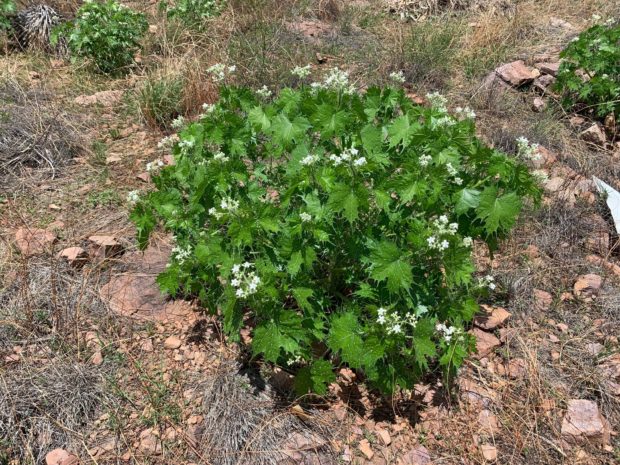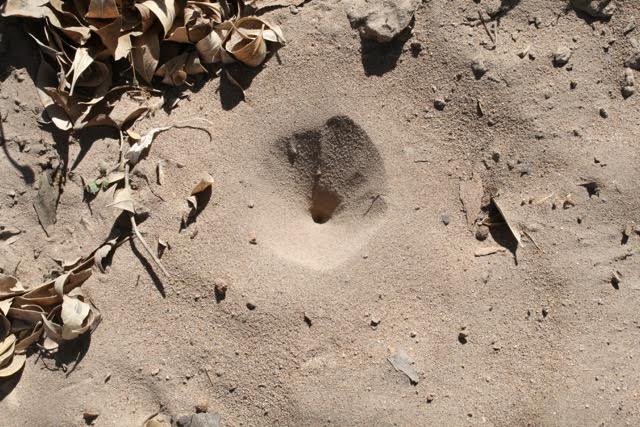I’m pretty sure I first encountered the plant called mala mujer in the Santa Rita Mountains south of Tucson around 30 years ago. I had 10 years of commercial horticulture under my belt and I had become a native plant geek. “To heck with all these exotics,” I’d shout to people, “Grow native!” Yes, an obnoxious native plant geek. Anyway, I’m also pretty sure I turned that encounter into a Growing Native episode and I mispronounced the genus Cnidoscolus. “The C is silent,” a good friend botanist/horticulturist gently told me. Where would I be without friends like that?
There are close to 100 species of Cnidoscolus found in North America, South America and the West Indies. They range from perennials to shrubs to trees and they’re so fascinating that some folks collect them…Kids collect the whole set! And listen, many of the species used to be in the genus Jatropha, which is so very cool, because I saw Jatropha macrorhiza and Cnidoscolus growing side by in the Mule Mountains. Well, I thought it was cool.

If you were to look up Cnidoscolus angustidens on SEINet https://swbiodiversity.org/seinet/ you’d find some neat photos of the flowers with their interesting stamen and pistils. The photos here are mine and taken on the day described in this episode.

Scotoleon Niger If I got the species of my local ant lion correct it is by luck and some educational guessing. There are 100...

Bristlehead (Carphochaete bigelovii) is a small shrub…a subshrub…that I’m not sure I would have recognized without the flowers and bristles. I wonder if I’ve...

Heuchera is found in the saxifrage family, Saxifracaceae, with 80 other genera that includes the genus Saxifraga and its 400 species. Yikes! My old...